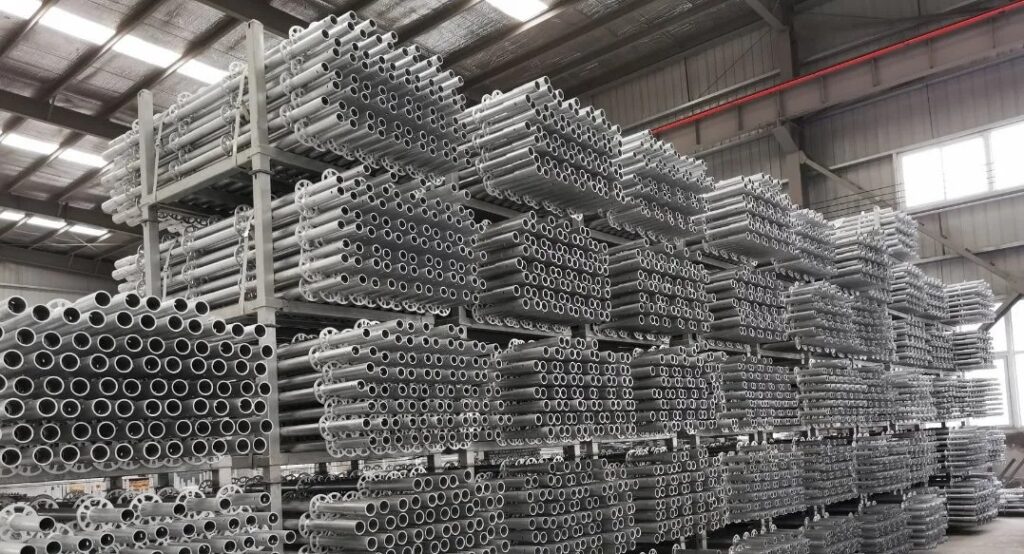Scaffolding sales are a preferred option for large-scale companies involved in long-term projects. By purchasing scaffolding systems, companies can use them for many years. The scaffolding offered for sale typically includes the following features:
Modular Scaffolding: These scaffolding systems offer the advantages of quick assembly and disassembly, are multi-layered, and can bear heavy loads.
Ringlock Scaffolding: Known for its high durability and sturdy structure, this system is widely preferred on construction sites.
H-Type Scaffolding: This scaffolding system is frequently used for exterior facade work and offers the advantage of quick setup.

Long-Term Investment: Purchasing scaffolding, a piece of equipment frequently used by construction companies, provides cost advantages in the long run.
Ownership: Scaffolding owned by companies can be customized and readily used when needed.
Technical Support and Maintenance: Companies that sell scaffolding typically provide technical support and necessary maintenance services for their products.
Needs Assessment: The company must determine the type of scaffolding needed. Factors such as height, load capacity, and project type should be considered.
Quotation and Pricing: Companies provide price quotes based on the type and quantity of scaffolding.
Delivery and Installation: After purchase, expert teams deliver the scaffolding to the installation site and provide assembly services.
Scaffolding rental services are an attractive option, especially for short-term projects or companies requiring scaffolding for a specific period. Rental offers cost advantages and flexibility.
Daily / Weekly / Monthly Rentals: Rental durations are determined based on the project’s needs. Daily or weekly rentals are suitable for short-term projects, while monthly rentals are ideal for longer-term projects.
Installation and Dismantling Support: Rented scaffolding is typically installed by professional teams and dismantled and retrieved at the end of the project.
Low Initial Cost: Renting scaffolding eliminates the need for a significant capital investment upfront.
Flexibility: Renting scaffolding only when needed provides cost management advantages.
No Maintenance or Storage Requirements: When scaffolding is rented, maintenance and storage responsibilities belong to the rental company, reducing the user’s workload.
Needs Analysis: During the rental process, the appropriate scaffolding is selected based on the project’s features and usage period.
Quotation and Agreement: An agreement is made based on quotes received from rental companies, and the usage period is determined.
Delivery, Installation, and Dismantling: The rental company delivers, installs the scaffolding on the specified date, and dismantles it upon project completion.
Quality and Safety Certifications: It is essential to verify whether scaffolding materials comply with national and international safety standards.
Technical Support: Professional technical support and installation services are crucial for both sales and rental services.
Pricing: Scaffolding sales and rental prices vary depending on material quality, duration, and scaffolding type. These factors should be considered when calculating costs.
Scaffolding Tubes: Made of high-strength steel or aluminum, these tubes are the main load-bearing elements of scaffolding systems.
Platforms: Secure surfaces, usually made of steel or wood, where workers can perform their tasks safely.
Guardrails and Safety Components: Guardrails and safety nets are used to prevent workers from falling.

Choose the best solution for your scaffolding and take your projects to the next level with our professional support!
